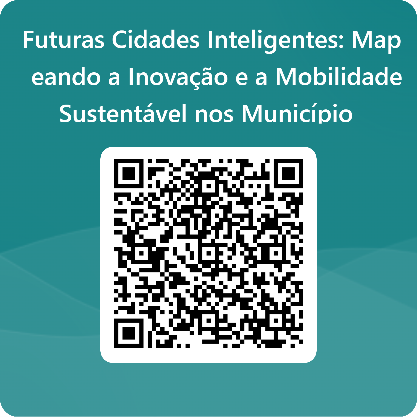Future Smart Cities Seminar: Mapping Innovation and Sustainable Mobility in Portuguese Municipalities
On December 9, 2024, BIKiNNOV – Bike Value Innovation Center Association, in partnership with the Municipality of Águeda, held the “Future Smart Cities” seminar at the Café-Concerto of the Águeda Arts Center, an event that brought together experts, municipal leaders and representatives of various entities to discuss sustainable mobility strategies and technological innovation in Portuguese cities.
“Studying cities is essential to identifying opportunities for innovation that will enable urban problems to be solved more effectively,” said Gil Nadais, BIKiNNOV’s executive director, during the seminar’s opening session.
With a large turnout of representatives from municipalities, the event was the stage for the presentation of the preliminary results of the survey “Future Smart Cities: Mapping Innovation and Sustainable Mobility in Portuguese Municipalities”, conducted in collaboration with national municipalities. This study revealed relevant data on the smart mobility strategies and digital transformation adopted by municipalities, with a special focus on the use of bicycles as a means of transportation and energy efficiency.
The seminar included moments of reflection and sharing, with the highlight being the panel “Local Solutions, Global Impact: Examples of Success in Cities”, in which representatives from the municipalities of Águeda, Braga, Fundão and Vila Nova de Famalicão took part. The speakers shared good practices and innovative projects that have transformed their territories, reinforcing the importance of local actions with a global impact.
In the panel “Open Debate – Challenges for Smart Cities”, moderated by José Carlos Mota, experts and participants discussed which good practices should be replicated by municipalities in the transition to smarter and more sustainable cities, exploring collaborative solutions.
“Cities face complex challenges, from sustainable mobility to energy efficiency, and it is through collaboration between municipalities, experts and entities that we can design innovative solutions with a real impact on people’s daily lives. This event is proof of BIKiNNOV’s commitment to supporting territories in the transition to smarter, more resilient cities.” Said João Miranda, president of the BIKiNNOV board.
“Portuguese municipalities have a central role to play in building a more sustainable and connected future, and smart cities are a strategic tool in this process,” said Pedro Folgado, Mayor of Alenquer and representing ANMP’s Smart Cities section. “Territorial intelligence is fundamental to improving people’s quality of life, promoting more efficient, collaborative management geared towards the integrated development of our cities and communities.”
The seminar was promoted as part of action line 1 – Smart Cities of the Future, of the Interface Mission – Core Funding for Technology and Innovation Centers, of the Recovery and Resilience Program (PRR), financed by the NextGenerationEU European Funds.
For more information go to: https://recuperarportugal.gov.pt
Preliminary results of the study
The study “Future Smart Cities: Mapping Innovation and Sustainable Mobility in Portuguese Municipalities” revealed essential information on the evolution of urban mobility and the adoption of smart practices by municipalities. With a response rate of over 48%, the sample is representative and makes it possible to highlight initiatives and challenges faced by municipalities in the field of sustainable mobility and the transition to smarter cities. Among the practices identified are the installation of micromobility infrastructures, such as bicycle docks near public transport, integrated intermodal ticket offices and digital platforms for planning journeys.
The data points to a growing use of technologies such as IoT, Big Data and artificial intelligence in urban management, as well as significant efforts to promote low-carbon mobility. Practices such as making shared bicycles available free of charge and installing electric chargers in urban areas reflect the commitment to creating more sustainable, inclusive and efficient transport systems.
These results reinforce the importance of collaboration between municipalities, Technology and Innovation Centers (TICs) and other entities to accelerate the digital and sustainable transformation of territories, promoting more resilient, liveable and intelligent cities.
About the Next Steps in the Study
BIKiNNOV informs that municipalities that have not yet participated in the “Future Smart Cities” survey
can do so by accessing the form using the QRCode below. This opportunity will allow us to further enrich the data collected and strengthen the analysis of mobility and innovation strategies in Portugal,
You can do so until December 31, 2024.

BIKiNNOV will continue to work in partnership with municipalities and other entities to follow up on the conclusions presented at the seminar and encourage the development of strategies that contribute to more resilient and intelligent cities.

